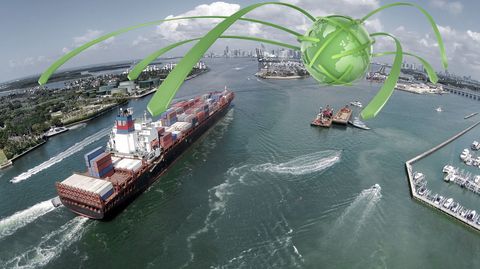Six months on from the UK's decisive vote to leave the European Union, businesses across Britain and beyond remain largely in the dark over what kind of impact the Brexit process will have on international trade.
Prime minister Theresa May remains cagey about provided exact details of the UK's bargaining position and strategy, as her government prepares to push ahead with plans trigger Article 50 of the Lisbon Treaty and begin the formal process of disentangling Britain from the EU before the end of March 2017. As such, it is unclear exactly what kind of trade relationship the UK will be aiming to maintain with the remaining EU nations once it exits the bloc.
This is an issue that has recently been scrutinized by the House of Lords in order to provide guidance and recommendations on the kind of trade agreement the UK should be looking to pursue with Europe post-Brexit. A report issued by the Lords' EU Internal Market and External Affairs Sub-Committees has subsequently outlined why a transitional deal may be needed help Britain account for some of the immediate trade challenges that will ensue from the split from the union.
Balancing sovereignty with a need for liberalized trade
One of the key reasons cited by the successful campaign in favor of leaving the EU ahead of the June referendum was a desire for the country to regain sovereignty, allowing the UK to once again maintain full control over its own legislative processes, rather than being subject to the needs of a larger international bureaucracy. This was seen as particularly important in terms of taking back control of immigration laws, which has become a hot-button issue due to growing unhappiness over the EU's policy on free movement of people between member states.
However, the EU has made it clear that free movement of people is a foundational principle of the single market, an entity that many in the UK want to remain part of even after Brexit takes place, as it would guarantee a continuation of tariff-free trading with the EU market. As such, the government is now under pressure to devise a solution that balances the desire for more sovereignty with a need to maintain a liberalized international trade environment.
The difficulty of an ideal solution
A number of options have been mooted to this end, but the Lords' report has noted that none of them can be claimed to offer a perfect solution. Remaining in the European Economic Area would be the least disruptive option in trade terms, but would be unlikely to give the UK any scope to limit free movement or vote on EU legislation; meanwhile, making a clean break with the bloc - a so-called 'hard Brexit' - and relying solely on World Trade Organization rules would result in significant tariffs for goods and restrictions on services.
Staying in a customs union with the EU could be an option that removes border checks for goods, but would restrict the UK's ability to sign trade deals with the rest of the world and contain no provisions for services; as such, a free trade agreement (FTA) was cited as the most flexible option, but even this would be complex and take longer than two years to negotiate, with no guarantee of allowing Britain to retain all the trade benefits to which it has become accustomed.
Lord Whitty, chairman of the EU internal affairs subcommittee, said: "While an FTA would provide the greatest flexibility and no commitment to freedom of movement, there is no evidence that it could provide trade on terms equivalent to membership of the single market."
The case for a transitional agreement
Given the British government's preference for a bespoke agreement with the EU post-Brexit and the delays involved in negotiating an FTA, the report concluded that a transitional trade arrangement should be put in place between the leaving of the EU and full implementation of the new trade terms - a short-term deal that could potentially incorporate a temporary extension of participation in the customs union.
Theresa May's government was therefore called upon to establish a clear gameplan for how this transitional arrangement may look at the outset of its negotiations under Article 50, which remain on course to take place early in 2017.
Baroness Verma, chair of the EU external affairs subcommittee, said: "It is unlikely that a bespoke EU trade agreement can be agreed within Article 50's two-year period, so a transitional deal is vital for protecting UK trade and jobs that rely on trade.
"The government should focus on trade with the EU and its World Trade Organization schedules. Deals with non-EU countries are contingent on the outcome of these negotiations, and need to be sequenced accordingly."






